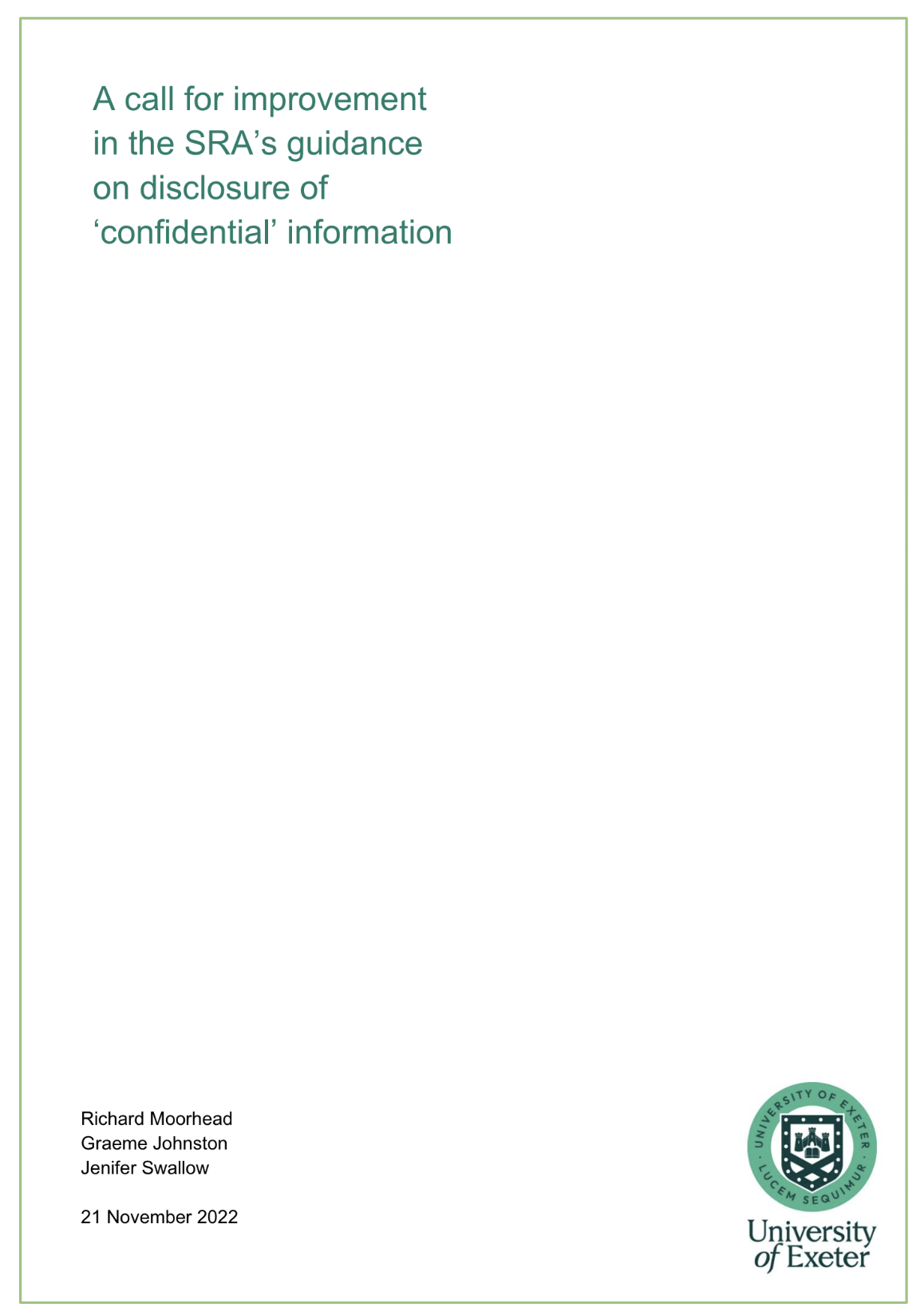PRESS: Solicitors facing ethical disclosure decisions “need more SRA help”
A piece here in Legal Futures, also covered in other trade press such as the Law Society Gazette, about the paper on which I collaborated with Professor Richard Moorhead and litigator and lawtech founder Graeme Johnson. The paper entitled ‘A call for improvement in the SRA’s guidance on disclosure of ‘confidential’ information’ is about the sorry state of Solicitors Regulation Authority guidance on confidential information, privilege and disclosure obligations of solicitors. The paper highlights the fact that the SRA guidance in fact discourages disclosure of wrongdoing by lawyers and calls for the guidance to be changed.
The article states:
The paper was authored by Richard Moorhead, professor of law and professional ethics at Exeter; Graeme Johnston, a former partner with City giant Herbert Smith Freehills and now chief executive of Juralio, a technology company providing software that helps people map their work; and Jenifer Swallow, a former general counsel to tech companies and ex-director of LawtechUK who is now a business and legal adviser to companies.
It comes against the background of lawyer involvement in wrongdoing rising in the public consciousness.
The Legal Services Board has highlighted issues such as the Post Office scandal, the use of non-disclosure agreements to cover up misconduct in the workplace, tax avoidance and the leaked Pandora and Panama papers, strategic lawsuits against public participation (SLAPPs), and weaknesses in sanctions and anti-money laundering compliance.
Earlier this year, it expressed “very significant concerns” about the professional ethics of in-house and commercial lawyers.
The Exeter paper said a critical issue for lawyers was what to do when they faced ethical pressure, such as becoming aware of, or being asked to advise on or facilitate, unlawful activity, or being pressured to behave in unprofessional ways.
“We believe that proper, accurate and constructive guidance, and support from the professional regulators can help reduce these problems significantly.
“Such guidance should cover critical issues on advising independently and objectively, being clear who the client is including in employer-client relationships, and reporting up within the client and, occasionally, reporting out in ways which properly balance professional obligations to uphold the rule of law and the best interests of the client.”
The writers said their discussions with lawyers in private practice and in-house “suggest that the boundaries and issues in this area are not clearly understood”. There were related problems with handling of legal professional privilege, and solicitors “asserting confidentiality and privilege to protect reputation and wrongdoing, sometimes inappropriately”.
They identified a host of problems with the SRA’s current guidance on disclosure of confidential information.
…Earlier this year, Ms Swallow said that in-house lawyers’ regulatory responsibilities, such as the SRA principles, should be written into their employment contracts to ensure their independence.
You can read the full article over at Legal Futures and the press release on the University of Exeter website, introducing our paper.
